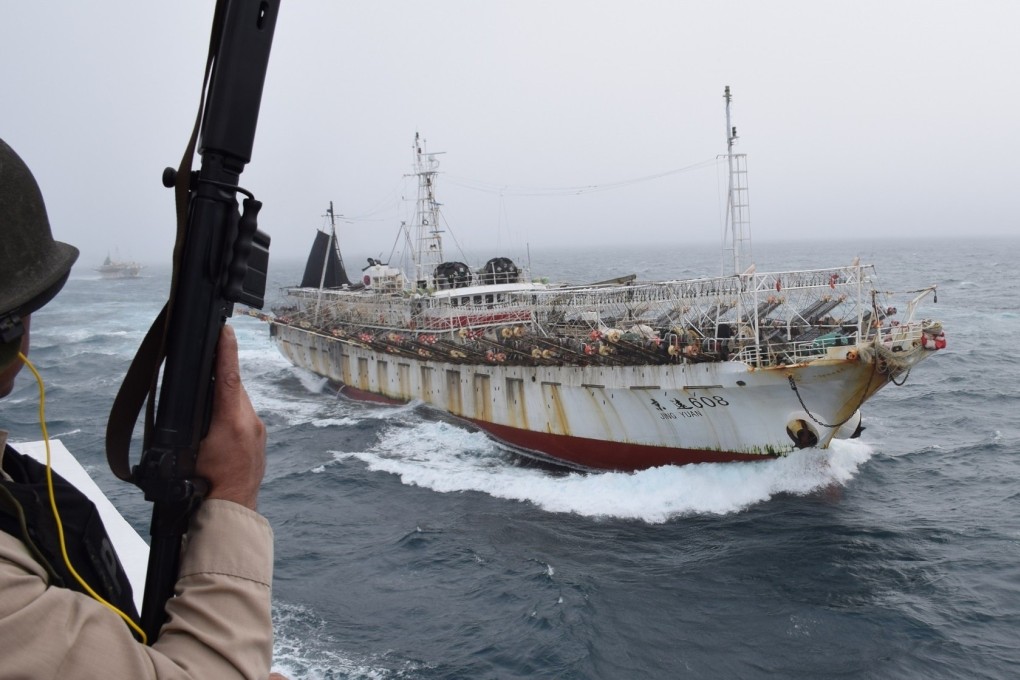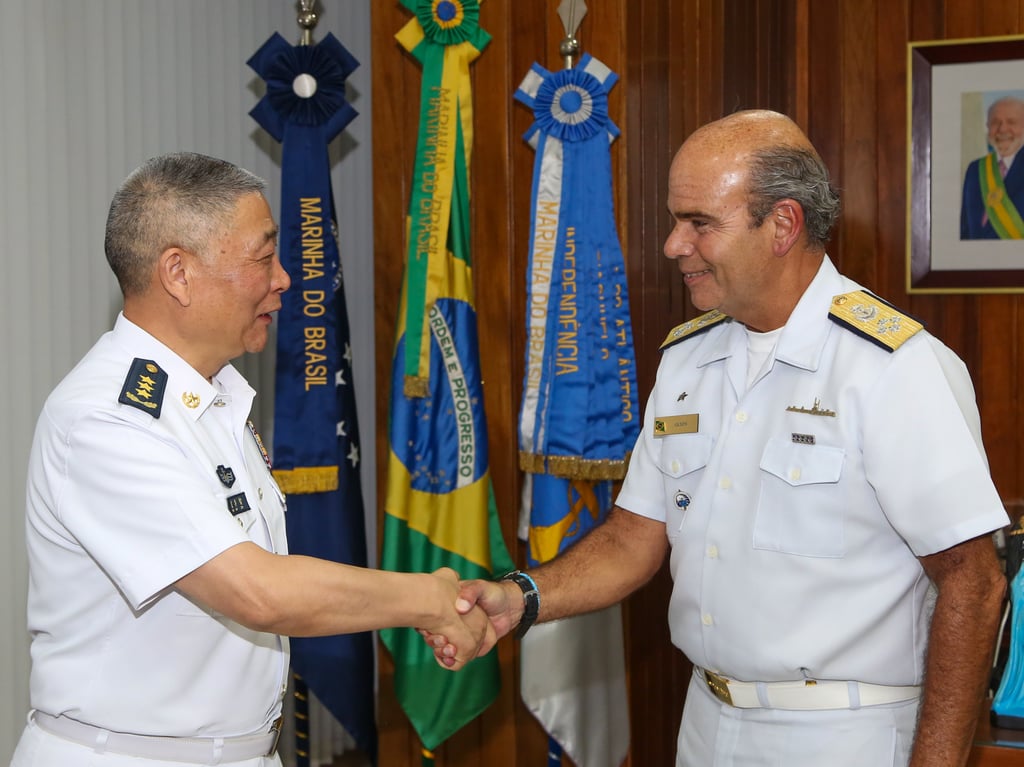Brazil and China officials resume bilateral defence talks but also discuss fishing complaints
- A delegation led by PLA Navy Secretary Yuan Huazhi makes a visit to Brasilia arranged just days in advance by Brazilian President Lula, according to sources
- Brazilians raise illegal fishing though Chinese embassy tells Post that China follows international laws and has ‘a zero-tolerance attitude’ toward the practice

Brazil used the visit of a Chinese naval delegation on Friday to complain about alleged illegal fishing by Chinese vessels between the Brazilian and African Atlantic coasts.
The military entourage arrived on Thursday, with the visit expected to last two days.
Led by the Secretary of the PLA Navy Yuan Huazhi, the group also includes the Navy Deputy Chief of Staff Admiral Li Pengcheng; China’s defence attaché in Brazil, Zhang Linhong; and five other officers.
The commander of the Brazilian Navy, Admiral Marcos Sampaio Olsen, and the chief of staff of the navy, Admiral José Augusto Vieira da Cunha de Menezes, hosted their guests in Brasilia.

The meeting points to the resumption of bilateral defence talks, postponed since 2020 due to the pandemic. Sources familiar with the matter confirmed that the visit was brokered by Brazilian President Luiz Inácio Lula da Silva and arranged just days in advance – the reason no military agreement is likely to be signed.